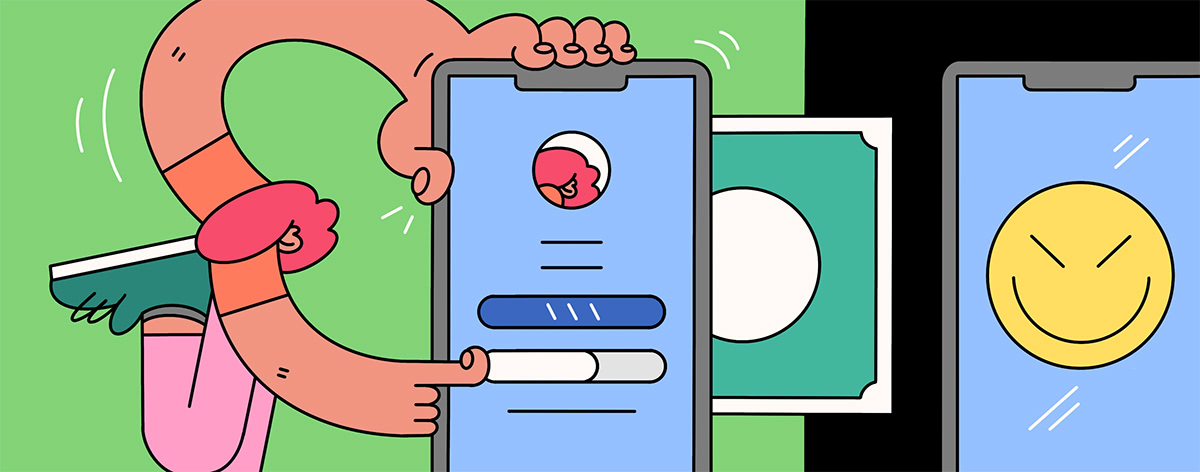

Digital Spending Traps
Many apps, games, and websites use deceptive or exploitative tactics to convince you to make purchases. While the costs of these items are usually fairly low, small purchases add up. Being aware of the most common practices these platforms use can help you spot and avoid them before falling into the trap.
Financial Traps
“Sales”
Many sites arbitrarily raise their prices so that they can offer sales with big discounts. This makes it feel like you’re getting a great deal. Who could turn down 40% off? The problem is that you think you’re saving money when you really aren’t and, thus, buy something when you normally wouldn’t.
Tiered Access or Paywalls
Some websites can suck you in by giving access to certain parts of it for free, but many features (often the best ones) aren’t available unless you pay. There may even be tiers. You pay a little for some content, but you’ll need to pay even more if you want the rest or want it without certain annoying features like ads.

Subscriptions
Paying $10 a month doesn’t sound too bad. But if you consider it is $120 a year, that can take a heavier toll on your budget. With multiple subscriptions to different games, apps, and websites, you’re suddenly paying a lot more money than you probably realize. Most companies also require you to opt out of a subscription that automatically renews, so if you aren’t paying attention, you could accidentally get stuck paying for more than you intend.
Careful Prices
It’s no accident that an extra life costs $0.99 instead of $1.00 or that an in-game item costs $8.99 instead of $9.00. When you read the “lower” price, it’s easier to justify buying it.
Psychological Traps
Intermediate Currency
Many games, apps, and websites require you to buy an intermediate currency that you use to buy things on the site. Whether they call it jewels, tickets, coins, or anything else, it’s a common way to hide what you’re actually paying. An item may cost 5,000 jewels, but what does that mean in actual dollars? If you already have the jewels in your inventory, you’re much less likely to check.
Similarly, when you buy the intermediate currency, you’re usually forced to buy them in predetermined bundles. This can lead to buying more than you need. Say, for example, you can get 200 tickets for $2.00 or 500 tickets for $4.50, but you only need 300 tickets. Regardless of how you get there, you’re forced to spend more than you need and may even be tempted to buy extra due to the “good deal.”
Addictive Games
Some games are designed to be extremely addicting. Like gambling, you may become convinced that you just need one more try to win or get the reward. Or maybe you feel good when you succeed. If the game asks you to pay to keep playing, you’re much more likely to do so. Some companies know this and take advantage of it.

Timed Deals
These deals are used to entice you to buy things by giving you a time limit. “Buy one get one half off, but only today,” or “Buy in the next five minutes and get double the points.” When you’re forced to make a snap decision or fear you may lose out on savings, you may buy something that you normally wouldn’t.
Pay-to-Win Scenarios
Similar to paywalls, some games may let you play for free, but to have any real chance at doing well or winning, you’ll need to purchase in-game items or stat boosts. This can be particularly effective when players are pitted against each other in competition.
Of course, some of these practices are more manipulative than others, but you should be aware of all of them when you make a purchase online or in an app. Ask yourself if any of these practices are being used to convince you. If so, it may be worthwhile to take a step back and reevaluate whether a purchase is actually worth your hard-earned money.
Neither Banzai nor its sponsoring partners make any warranties or representations as to the accuracy, applicability, completeness, or suitability for any particular purpose of the information contained herein. Banzai and its sponsoring partners expressly disclaim any liability arising from the use or misuse of these materials and, by visiting this site, you agree to release Banzai and its sponsoring partners from any such liability. Do not rely upon the information provided in this content when making decisions regarding financial or legal matters without first consulting with a qualified, licensed professional.

